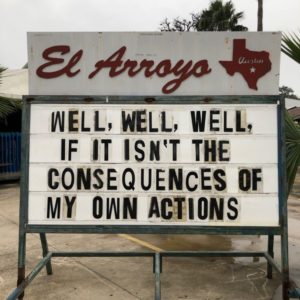To the surprise of many, Rick Perry has come out for legalization of psychedelic drugs to treat PTSD.
Republican Rick Perry served as governor of Texas from 2000 to 2015 and then did a stint as secretary of energy from 2017 to 2019. He describes himself as a small-government conservative. He’s not in favor of legalizing all drugs, but in the last five years he has warmed up to the idea that psychedelics could be a valuable and legitimate treatment for trauma.
Reason’s Nick Gillespie sat down with Rick Perry in June at the Psychedelic Science 2023 conference to discuss how poorly the U.S. deals with those suffering from post-traumatic stress disorder (PTSD) and how he believes that psychedelic-assisted therapy can help.
Q: How have you changed your mind about psychedelics?
A: When I got introduced to this approximately five years ago, it was through a young man [Morgan Luttrell] who worked with me at the Department of Energy.
I was the secretary of energy and he was seeing some of his colleagues in the special operations world—this is a former Navy SEAL, who, interestingly enough, today is a United States congressman. He’s the one that started getting me comfortable with “Rick Perry” and “psychedelics” in the same sentence. His twin brother, Marcus Luttrell, lived with us at the governor’s mansion as my wife and I were learning about post-traumatic stress disorder and how poorly our government was dealing with this. And we were trying to find solutions to help heal this young man.
Q: Can psychedelics help individuals struggling with PTSD?
A: I’ve educated myself about the history of this and why psychedelics got taken away from the research world, from the citizens at large. These are medicines that were taken away for political purposes back in the early ’70s that we need to reintegrate. The potential here is stunningly positive.
I’ll give you one example: Rachel Yehuda, Ph.D., who’s working at [Veterans Affairs] in New York. She has two studies in phase three that are showing just amazing results. They have classic symptoms—anxiety, depression, sleeplessness, suicidal thoughts, one or all of those. Seventy-five percent of those individuals who are treated have zero symptoms after six months. Those are stunning numbers.
Q: Do you think people in your political tribe will be able to grasp this message about psychedelics treating trauma?
A: This is an education process and the short answer is yes, I do. Because I’m not for legalization of all drugs. We need to go a little more pedestrian here. Government has fouled this up substantially in the past. Let’s not give them a reason to mess this up, again. Let’s go thoughtfully at an appropriate pace as fast as we can.
Government needs to be limited. It needs to be restrained at almost every opportunity that you can. We haven’t been very successful with that in our country.
This isn’t the first time “Rick Perry” and “drugs” have appeared in a post here, as there was a significant possibility that Perry was hopped up on goofballs following back surgery in his 2012 presidential run flameout. But Perry is very far indeed from a liberal squish. Maybe the time has arrived for Republicans to give serious thought to rethinking current drug policy.
The United States Constitution is silent on the issue of drug regulation, which, under the 10th Amendment, should make drug policy the provenance of the states for anything not involving interstate commerce. Federal marijuana prohibition rests on the deeply un-conservative New Deal expansion of federal powers enshrined in Wickard vs. Filburn, which allowed the federal government to regulate what people grow on their own land for their own consumption. And our current drug prohibition policies aren’t keeping illegal drugs flowing into the country from Mexico and China.
On the flip side of that coin, deep blue locales like San Francisco and Seattle have amply demonstrated how not to legalize drugs, refusing to enforce basic law and order and letting mentally ill transients shoplift at will and shit in the streets, destroying the quality of life for law-abiding citizens. Clearly de facto legalization doesn’t work if government refuses their fundamental duty of ensuring ordered liberty.
There’s a vast range of policy options between “throwing teenagers into prison for years for smoking a joint” and “let drug addicted transients shit in the streets.” San Francisco and Seattle show how Democrats run things if left to act on their instincts of hating the police and farming homeless populations for graft. That means Republicans will have to come up with policy options for slow, careful, phased drug legalization policies on their own.
State legalization of marijuana has been a very mixed bag, with vast illegal grow operations popping up in states with even partial/medical legalization, and it hasn’t been nearly the economic boon that the legal pot lobby had forecast. More careful experimentation and data gathering is required.
For psychedelics, the literature seems to indicate that addiction rates are very low, but there are obviously people who have seriously damaged their mind by tripping too much.
But ultimately, the purpose of government is not to protect citizens from themselves. Drug prohibition cuts against fundamental American principles. A lot of modern drug addiction has it roots in the culture of despair, lawlessness, family breakup, social decline and general failure Democrat-run cities have cultivated in their poorest citizens. Starting to fix those problems would do far more to fix the problems of addiction than current drug prohibition policies.
Obviously Joe Rogan needs to interview Rick Perry so they can talk about psychedelic drugs..

 Multiple former staff members allege that a mismanagement of funds, high turnover rate and general disorganization have plagued the Center since its inception.
Multiple former staff members allege that a mismanagement of funds, high turnover rate and general disorganization have plagued the Center since its inception.
